Italian drought continues at Giro d'Italia
Examining the home nation's struggle to win stages
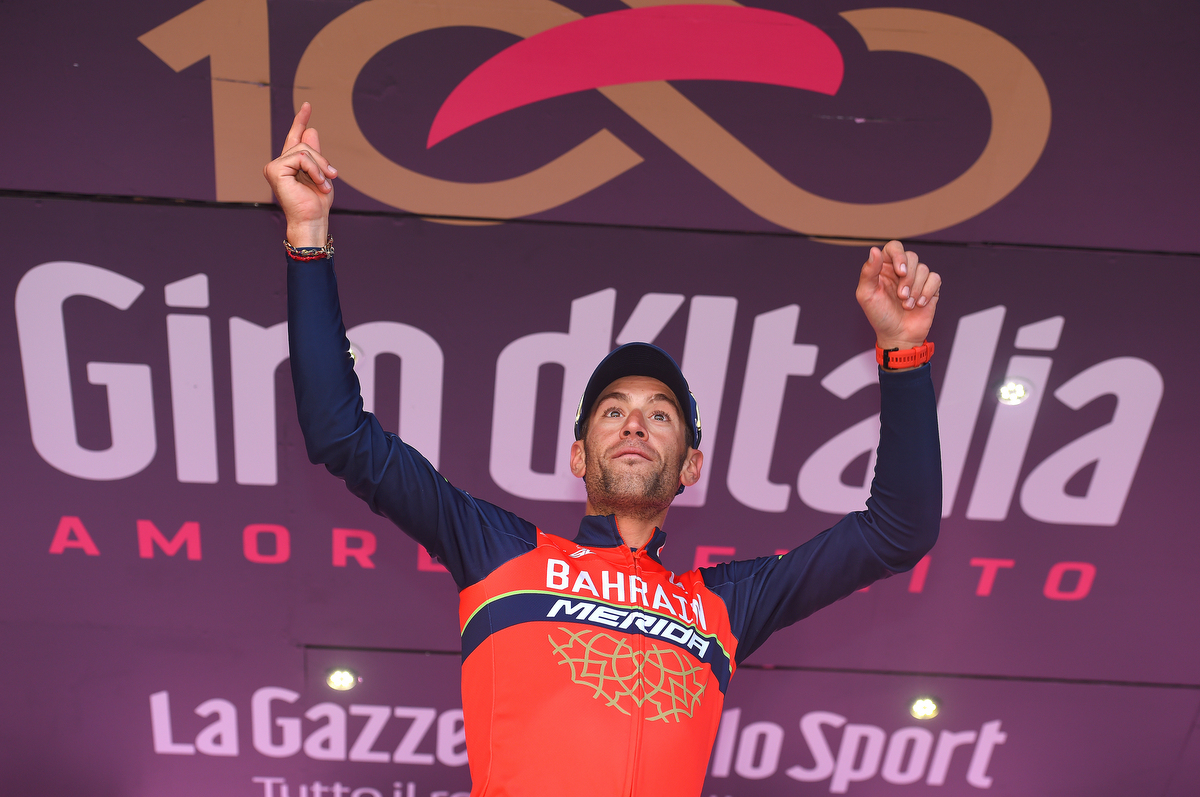
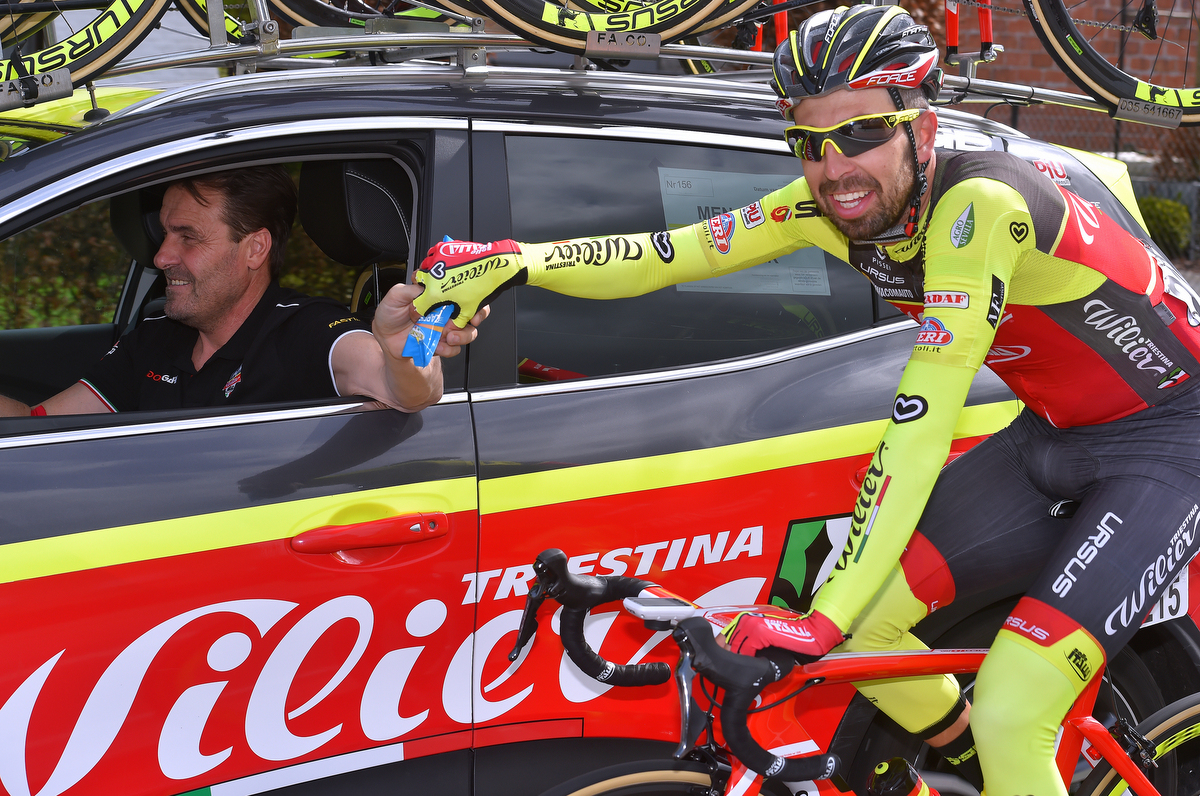
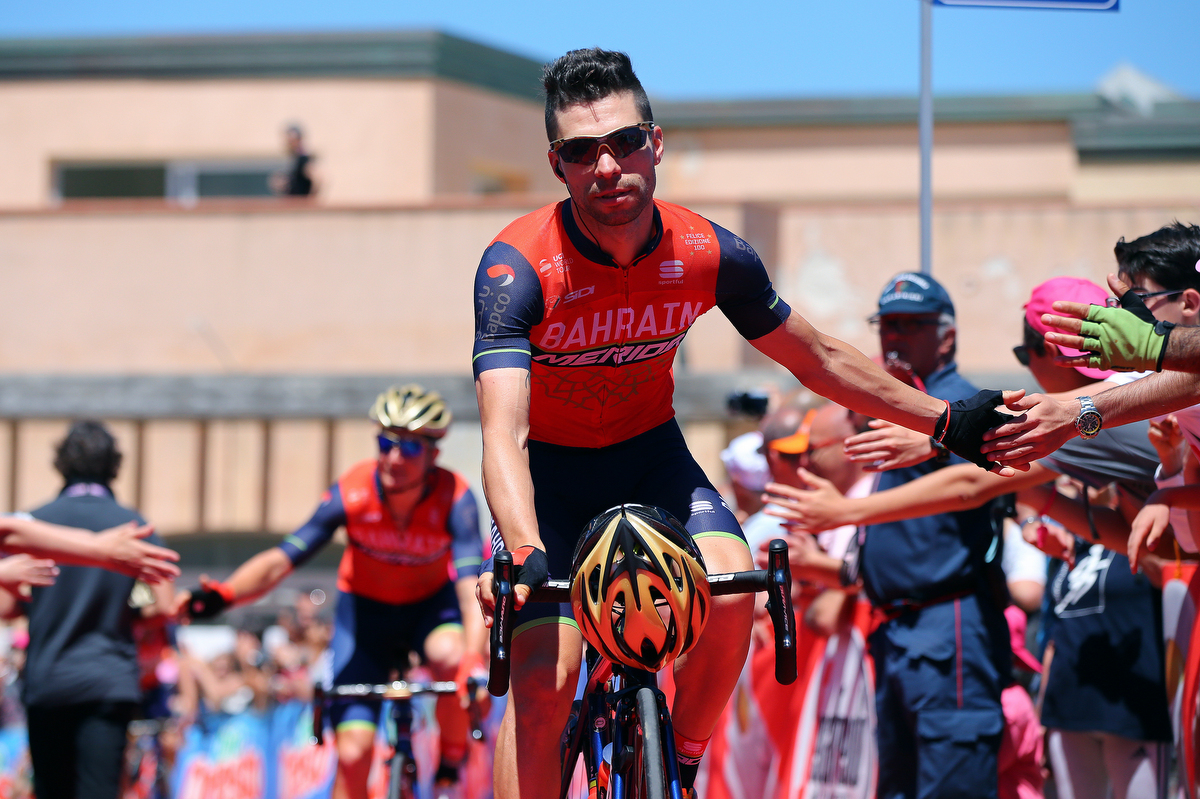
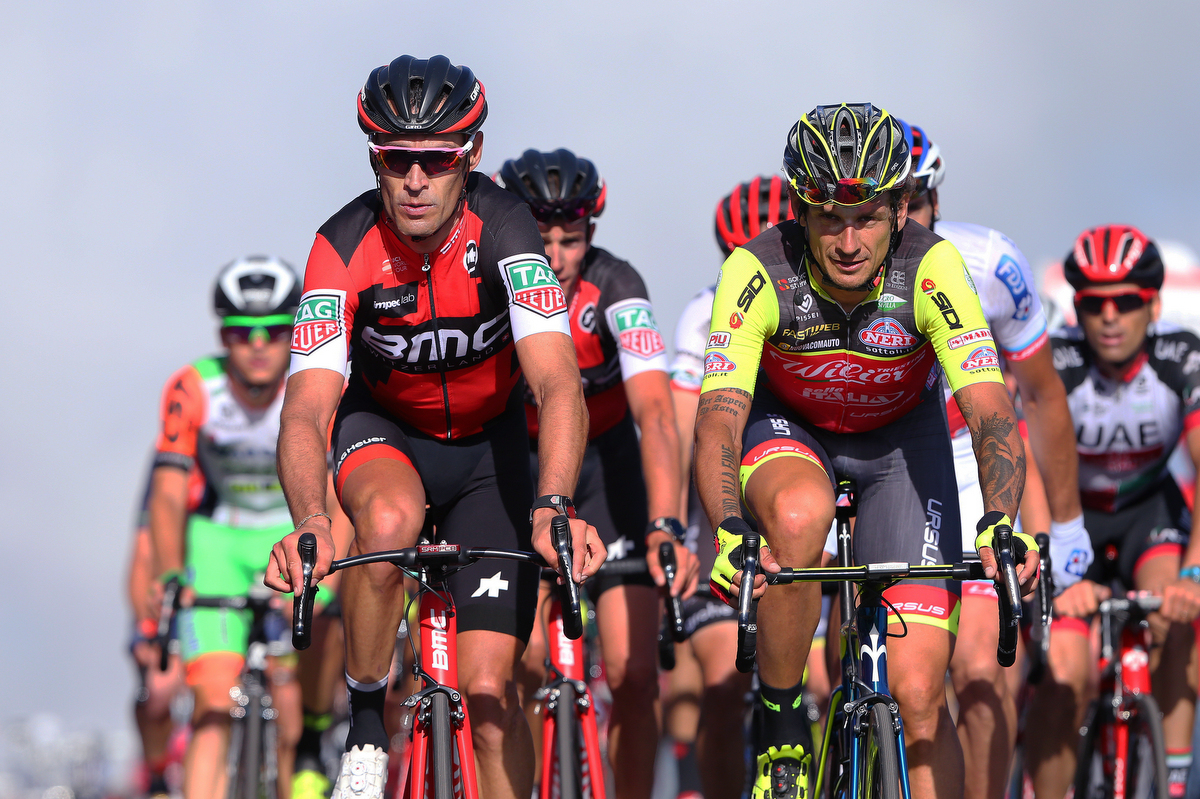
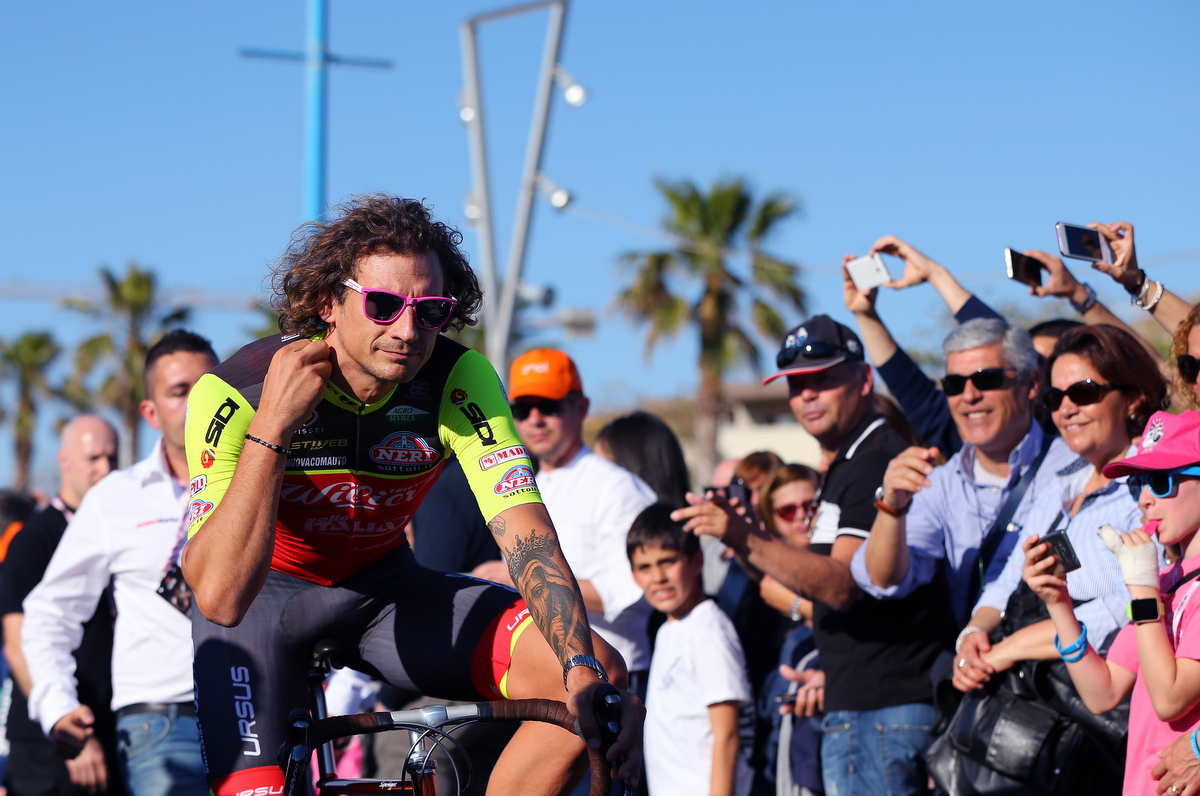
Perhaps nothing sums up Italy's Giro d'Italia to date quite like La Gazzetta dello Sport's decision to devote two pages of Friday's edition to an interview with the retired Ivan Basso. In the absence of any Italian winners to laud thus far, the home press finds itself leaning upon the men of yesteryear to fill column inches.
In Alberobello on Friday afternoon, for example, while Giuseppe Fonzi's long breakaway effort was slowly jumping the shark in deepest Puglia, a sizeable contingent of Italian reporters stood huddled around the region's most famous ex-rider, Leonardo Piepoli, at one side of the press room. When Francesco Moser walked by in his cycling kit, fresh from guiding guests from a race sponsor across the finish line, one almost felt a nation turn its lonely eyes to him.
Seven stages have now gone by without a stage win for Italy on the Giro, technically the worst start by the home nation in the history of the race, even if in 2010, Liquigas' early team time trial win was the only Italian triumph before Filippo Pozzato claimed victory on stage 12 in Recanati. Even before the unwelcome landmark arrived, local criticism has begun to amplify on this Giro. "Italians, where are you?" La Gazzetta lamented after a five-man break escaped up the road on stage 6 without a single local representative.
Before that stage to Terme Luigiane had finished, Wilier-Triestina manager Luca Scinto was already scathing in his assessment of his own charges when talking to RAI television. "I have riders who want to come to the Giro and then after a few stages, they already have sore legs," Scinto complained. "It was an important stage, they should have been in the break, and instead: nothing. I'm furious. I could send half the team home."
Scinto's leader, Filippo Pozzato, who had been waiting on the prospect of a group sprint, sat up in the finale once it was apparent that the escapees would not be caught. After the stage, he sought to put the travails of Wilier-Triestina, and of all the Italian riders in the race, into context. "We've tried to go on the attack every day and we've been there in the sprints too, but it's never easy to win," Pozzato said. "The globalisation of cycling means there are a lot of international riders in the race, and they've raised the level of ability."
In every Giro up to 1988, at least 50 percent of the gruppo was made up of Italian riders, and the drop-off in home participation has only accelerated throughout the WorldTour era. The current sense of malaise in Italian cycling is nothing new, in short, and lamenting the dearth of home success at the Giro is fast becoming as novel as pointing out that France has not produced a Tour de France winner since 1985.
In 2004, the final Giro before the UCI introduced what was initially called the ProTour, the race featured 75 Italian riders spread across eleven Italian teams, plus Gianni Savio's Colombia-Selle Italia squad. In 2017, there are just 43 Italian riders in the Giro – the smallest proportion in history – and only two Italian teams, the Pro Continental outfits Wilier-Triestina and Bardiani-Valvole. Lampre's withdrawal from sponsorship at the end of 2016 means that Italy no longer has a single WorldTour team.
Get The Leadout Newsletter
The latest race content, interviews, features, reviews and expert buying guides, direct to your inbox!
There are, however, some mitigating circumstances for the drought thus far on this Giro. Vincenzo Nibali's focus is fixed firmly on defending his overall title, for instance, and his Bahrain-Merida squad – which includes former Giro stage winners Giovanni Visconti and Franco Pellizotti – is dedicated exclusively to that goal.
Other Italian strongmen in the race are riding in the service of foreign leaders, such as Diego Rosa at Sky, Manuel Quinziato at BMC or Enrico Battaglin at LottoNL-Jumbo. The list of absentees is notable, too. Fabio Aru (Astana) is missing through injury, while UAE Team Emirates has saved Diego Ulissi for the Tour de France, which Lampre would never have allowed were it still the sponsor. Elia Viviani (Sky) and Sonny Colbrelli (Bahrain-Merida) have been left out by teams focused on the general classification battle.
In different ways, the two Italian teams in the Giro have disappointed. Bardiani-CSF are fortunate to still be in the race at all after news of Stefano Pirazzi and Nicola Ruffoni's positive tests broke on the eve of the start in Sardinia. Jakub Mareczko's second place in Messina aside, Wilier-Triestina have failed to make an impression.
It would be a stretch, however, to suggest that the absent Androni Giocattoli or Nippo-Vini Fantini would be faring much better. As Il Corriere della Sera put it: "The second division Italian teams (two al the Giro, two at home) tweet a lot but invest very little. Altitude camps and training structures are down to the bare bones and often paid for by the athletes themselves, who are often on the minimum wage."
As the Giro heads into the high mountains, the situation ought to improve, at least superficially. Nibali, Domenico Pozzovivo (AG2R-La Mondiale) and Davide Formolo (Cannondale-Drapac) will be expected to shine. Paolo Tiralongo and Dario Cataldo (Astana) offer possibilities. And yet it seems nothing, not even a third overall victory for Nibali, will quite paper over the cracks.
To subscribe to the Cyclingnews Podcast, click here.

Barry Ryan was Head of Features at Cyclingnews. He has covered professional cycling since 2010, reporting from the Tour de France, Giro d’Italia and events from Argentina to Japan. His writing has appeared in The Independent, Procycling and Cycling Plus. He is the author of The Ascent: Sean Kelly, Stephen Roche and the Rise of Irish Cycling’s Golden Generation, published by Gill Books.